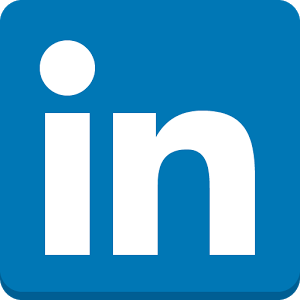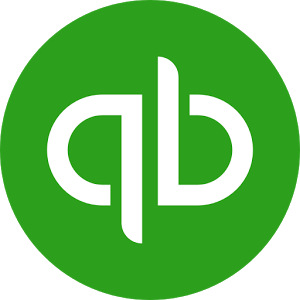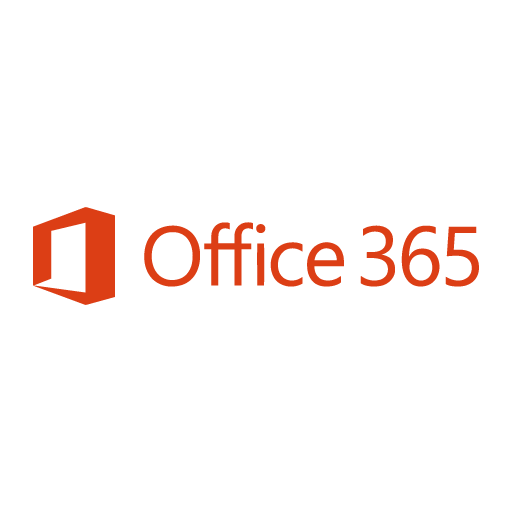How I Built A $80K/Month Law Firm Without Ever Working At One
Hello! Who are you and what business did you start?
My name is Steve Parr and I started Parr Business Law in 2017. We are a boutique small business law firm in Vancouver serving entrepreneurs. As a service-based business, we started from 0. Today we generate $80-90k/month in revenue. Our year of year net profit is roughly on track to double from 2022 to 2023 from $150k to $300k.
When I first started the company it was just me, today I have eight staff members helping me run the business.
What makes us unique is we service clients at the intersection of corporate law & estate planning law. We aim to take care of the business owner and their family.
What's your backstory and how did you come up with the idea?
I was a reluctant lawyer when I graduated from law school and completed my articles in 2013 when I decided that I wanted to be an entrepreneur. I was unemployable. I think other entrepreneurs reading this know that exact feeling. You just know that you’re wasting your potential and you’re doing mediocre work for the company employing you. The problem was I had $250,000 worth of debt as a result of going to school.
Instead of going to work for a law firm, I began an Airbnb property management firm. I did that for 2 and ½ years. Through that experience, we began working with a lawyer in Vancouver to set up contracts for the properties as well as employment contracts. Even being a lawyer myself, I found it challenging to determine exactly what I needed and whether I was getting good value. It became clear to me that this market wasn’t being serviced very well and there was an opportunity to start a law firm that focused on small businesses.
As someone who started as an entrepreneur and transitioned into building a law firm, we have a unique insight into the challenges faced by many entrepreneurs. And because I didn’t work in a law firm before starting my own, I didn’t have any preconceived notions about how a law firm should operate.
Take us through the process of building the first version of your product.
Original Website Design

The first services we offered were incorporation, drafting shareholder agreements, and commercial contracts. These were all of the products that we needed when I was running my Airbnb property management company.
I learned how to do this on the fly, I reached out to other lawyers in the space to connect and asked them to get a coffee to ask them as many questions as I could.
As far as initially packaging up our services, the first thing I did was find a good website designer and a professional photographer. It was important to establish a brand that looked trustworthy and lent credibility to a firm that had just started. Beyond that, startup costs were $10,000. These were things like office space (that I was sharing), law society dues, and other minor expenses.
My very first client was Patrick, whom I met at a Bachelor party. He owned a small business in Vancouver, I told him I was starting up a law firm and he needed a lawyer. And that was it! I don’t remember exactly how much I charged him but my fees were way below what they are today and certainly below market rates back then.
After that, I networked and one of the networks I got actively involved with was Crypto. It was 2017 and the run up was massive. There were a lot of people making a lot of money and virtually no lawyers who knew anything about the space so I leaned into that. I wrote a chapter in Lexus Nexus (a legal publisher) about the legal issues with tokens in Crypto and began giving talks in that space.
The sooner you take action the sooner you can figure out where you can provide meaningful value. Once you’ve figured that out, you’ve now got a viable business.
Describe the process of launching the business.
New website design

The launch strategy was getting the firm’s name out there and letting entrepreneurs know that I was open for business. This was simple, I attended every single event that I could to meet as many founders, service providers, and industry leaders as I could.
The landscape in law is pretty well the same across every major city. There are massive law firms with massive marketing budgets, attracting the best and brightest in the field. I never set out to become a certain size. I wanted to service small business owners and do it well.
I attended startup events, events held by other law firms - any opportunity that I had to get in a room with potential clients I took.
As far as the digital side, I took a lot of care in finding a good web designer & getting professional photography done. I found both through personal friends and I spent $1500 getting a website done and a few hundred getting photography done.
One great thing about launching a service-based business is the startup costs are very minimal. I was still running the Airbnb rental management company so that was providing income for me. That business also had an office so I just sub-leased the office from my other business.
The two lessons that I learned from this whole process are: take action and figure out where you can provide value.
Taking action is the most important part of starting any business. It’s going to be uncomfortable because there will be plenty of things that you have no clue how to do. And the sooner you take action the sooner you can figure out where you can provide meaningful value. Once you’ve figured that out, you’ve now got a viable business.
The best decisions and worst decisions are always in hiring. We’ve made expensive mistakes hiring people who did not work out. On the flip side of that, we’ve hired people who are phenomenal and we are fortunate to have them on our team.
Since launch, what has worked to attract and retain customers?
Youtube / Blog Post Thumbnails

Growing a YouTube channel has been very instrumental in the growth of my practice. We currently have 3500 subscribers and it continues to grow and provide us with more leads.
There isn’t a lot of competition as a lawyer producing social media content. Most lawyers and other service professionals are too busy to create content.
With YouTube, it’s a flywheel.
You put out content, you get better and as you get better your channel grows and as your channel grows you get more leads which encourages you to put out more content.
I produce content answering common questions. What’s a holding company? Should you incorporate? I try to batch these videos so I produce 5-10 in one day. I’ll develop rough scripts, set up the camera in my office, and start recording. Once I’m done I edit them.
We also have a newsletter that has 6,000 subscribers which is important for our business. We collect emails through a handful of opt-ins on the website. I send out newsletters that contain content that I’ve produced and legal information.
One other area that we do a good job of is tracking our leads and understanding where those leads came from. Most boutique legal firms never bother to figure this out, so we think we have an edge here as far as understanding where our business comes from which allows us to invest the appropriate dollars in the appropriate marketing channels. We’ve found YouTube, email marketing, referrals, and local SEO generate a substantial amount of our leads.
Finally, we regularly ask for feedback. This does two things. First, it improves our customer service and our service offering. Second, it gives us a good reason to contact them asking if there's anything else they need help with or if they know anybody who could benefit from our services.
How are you doing today and what does the future look like?
We are currently profitable. I've attached a screenshot of what our profitability looks like. We are generating $20-35k/month in net profit. The graph below gives a really good picture of how 2019 was slow and then by 2020 things started to pick up and now we’re growing quarter over quarter.

Today we have one lawyer, two paralegals, and two administrative staff. We intend to expand into other services including real estate law. Our goal is to get to $1.5m of revenue by the end of next year (2024).
Through starting the business, have you learned anything particularly helpful or advantageous?
The best decisions and worst decisions are always in hiring. We’ve made expensive mistakes hiring people who did not work out. On the flip side of that, we’ve hired people who are phenomenal and we are fortunate to have them on our team. We’ve gotten lucky with our great hires, like most other small businesses we don’t have a rigorous hiring process, mostly I trust my gut.
One other area that helped us was when we launched in 2017 Crypto was taking off and it gave us a niche to focus on early when we were trying to build revenue. Today we no longer focus on that space but when we were first starting out having a specific niche that was trending and new was very helpful.
What platform/tools do you use for your business?
We use - Hootsuite, Mailchimp, and Google Suite.
What have been the most influential books, podcasts, or other resources?
I listen to a lot of Huberman Labs.
I recently read $100m Leads which was great. This has helped me to understand the pain points of entrepreneurs, how our business can help solve those pain points, and how to effectively market them.
Advice for other entrepreneurs who want to get started or are just starting out?
Advice for other entrepreneurs:
- Take action
- Reach out to other people who you think are doing a good job in your industry and do whatever you can to spend time with them. This was critical for me, it allowed me to expedite my business rapidly.
The mistakes I often see others making:
- Settling for a specific service too early versus finding a better problem to solve. In $100m Leads it talks about the best problems to solve are problems that rich people have and solving them better than your competition. This generally means providing better customer service and fulfilling the service faster.
Are you looking to hire for certain positions right now?
Yes, all of our openings are on our careers page.
Where can we go to learn more?
If you have any questions or comments, drop a comment below!

Download the report and join our email newsletter packed with business ideas and money-making opportunities, backed by real-life case studies.

Download the report and join our email newsletter packed with business ideas and money-making opportunities, backed by real-life case studies.

Download the report and join our email newsletter packed with business ideas and money-making opportunities, backed by real-life case studies.

Download the report and join our email newsletter packed with business ideas and money-making opportunities, backed by real-life case studies.

Download the report and join our email newsletter packed with business ideas and money-making opportunities, backed by real-life case studies.

Download the report and join our email newsletter packed with business ideas and money-making opportunities, backed by real-life case studies.

Download the report and join our email newsletter packed with business ideas and money-making opportunities, backed by real-life case studies.

Download the report and join our email newsletter packed with business ideas and money-making opportunities, backed by real-life case studies.














